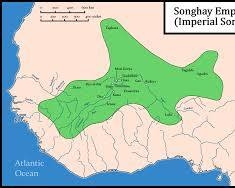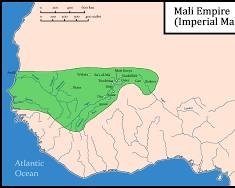


Day 19: African Kingdom And Empires;Songhai Empire
esther princess matthew@estherprincessmatthew739838
6 months ago
The Songhai Empire was a powerful West African state that flourished from the 15th to the 16th centuries. At its peak, it was one of the largest empires in African history, controlling a vast territory along the Niger River.
The Songhai Empire emerged from a small kingdom centered around the city of Gao. Under the leadership of Sunni Ali Ber, the empire expanded rapidly through military conquest. He conquered key cities like Timbuktu and Djenné, establishing control over important trade routes and centers of Islamic learning.
The reign of Askia Muhammad (also known as Askia the Great) marked the golden age of the Songhai Empire. He implemented a centralized administration, promoted Islamic scholarship, and fostered economic growth. Timbuktu, under his rule, became a renowned center of Islamic learning, attracting scholars from across the region.
The Songhai Empire began to decline after the death of Askia Muhammad. Internal struggles and succession disputes weakened the empire, making it vulnerable to external threats. In 1591, the Moroccan army, equipped with superior firearms, invaded the Songhai Empire and defeated its forces at the Battle of Tondibi. This marked the end of the Songhai Empire and the beginning of a period of Moroccan colonial rule in the region.
Despite its relatively short-lived existence, the Songhai Empire left a significant legacy. It was a major center for Islamic scholarship, trade, and cultural exchange. The cities of Timbuktu and Djenné, under Songhai rule, became renowned centers of learning and commerce. The Songhai Empire's legacy continues to inspire and influence the region, reminding us of the rich and complex history of West Africa.
cc: Google
#DiscoverAfrica
#VisitAfrica
#neighbors
